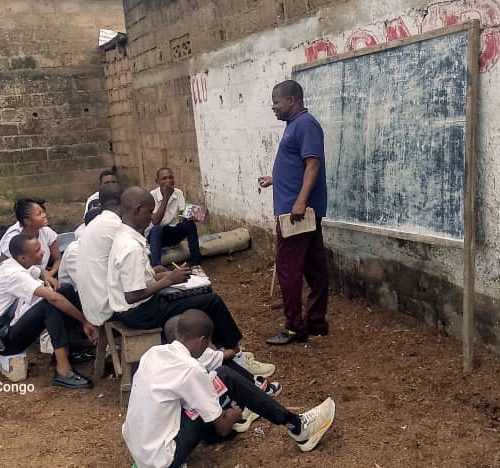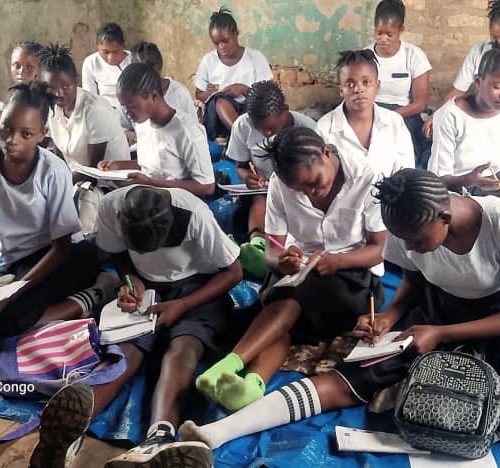Copyright © 2025 Hope Branham Trust Foundation. All Rights Reserved.
Contact Us
- 12325 Penson Street,Haslet Texas 76052 Texas, United States
Follow Us


Access to quality education is the cornerstone of a prosperous society. It is a fundamental right that enables individuals to develop their skills, knowledge, and potential. Education not only improves personal outcomes but also drives economic growth, reduces poverty, and fosters social cohesion. In this comprehensive article, we will explore the profound impact of quality education on individuals and communities, the barriers to accessing education, and the strategies to overcome these challenges.
Quality education is a powerful driver of economic growth and development. Educated individuals are more likely to secure stable and higher-paying jobs, which increases their purchasing power and contributes to economic stability. Moreover, a well-educated workforce attracts investments and fosters innovation, driving technological advancements and productivity improvements. Countries with high literacy rates and advanced educational systems often experience sustained economic growth and reduced income inequality.
Education is a key tool in the fight against poverty. By providing individuals with the skills and knowledge necessary for employment, education opens doors to better job opportunities and higher wages. This, in turn, enables individuals to lift themselves and their families out of poverty. Additionally, educated individuals are more likely to make informed decisions about health, family planning, and financial management, further contributing to poverty reduction.
There is a strong correlation between education and health outcomes. Educated individuals are more likely to understand health-related information and adopt healthy behaviors. They are also better equipped to access healthcare services and make informed decisions about their health. For instance, educated mothers are more likely to seek prenatal care, practice proper nutrition, and ensure their children receive vaccinations. As a result, education contributes to lower mortality rates, improved maternal and child health, and a healthier population overall.
Education fosters social cohesion and stability by promoting values such as tolerance, empathy, and respect for diversity. It encourages critical thinking and problem-solving skills, which are essential for resolving conflicts and addressing social issues. Moreover, educated individuals are more likely to participate in civic activities and engage in democratic processes, contributing to a more stable and inclusive society.
Economic barriers are one of the most significant obstacles to accessing quality education. Many families cannot afford the costs associated with education, such as tuition fees, school supplies, uniforms, and transportation. This is particularly prevalent in low-income countries, where education systems are often underfunded, and families must bear the brunt of educational expenses.
Geographical barriers also impede access to education. In many rural and remote areas, schools are scarce, and students must travel long distances to attend classes. This can be particularly challenging for young children and those with disabilities. Additionally, inadequate infrastructure, such as poor roads and lack of transportation, further exacerbates the problem.
Cultural and social barriers, such as gender discrimination, child labor, and early marriage, also hinder access to education. In some cultures, girls are less likely to receive an education due to traditional gender roles and societal expectations. Child labor and early marriage often force children to drop out of school, depriving them of the opportunity to pursue their education.
Political and policy barriers can also restrict access to quality education. In some countries, educational policies are inadequate or poorly implemented, resulting in substandard educational systems. Political instability, conflicts, and displacement can disrupt education and prevent children from attending school. Additionally, corruption and mismanagement of educational resources can undermine the quality of education.
Providing financial support and scholarships is crucial to overcoming economic barriers to education. Governments, non-profit organizations, and private institutions can offer scholarships and grants to students from low-income families. Additionally, implementing policies that reduce or eliminate tuition fees and provide free school supplies can help alleviate the financial burden on families.
Improving infrastructure and access to education in rural and remote areas is essential. Governments and organizations can invest in building schools, improving transportation, and providing necessary facilities such as clean water and sanitation. Additionally, implementing mobile and online education programs can help reach students in hard-to-access areas.
Promoting gender equality in education is critical to ensuring that all children have the opportunity to learn. This can be achieved by raising awareness about the importance of girls' education, implementing policies that promote gender equality, and providing support to families to encourage them to send their daughters to school. Additionally, creating safe and inclusive learning environments can help address issues related to gender-based violence and discrimination.
Addressing cultural and social barriers requires a multifaceted approach that involves community engagement and education. Governments and organizations can work with local communities to raise awareness about the importance of education and to challenge harmful cultural practices such as child labor and early marriage. Additionally, providing support services such as child care and counseling can help families prioritize education.
Strengthening educational policies and systems is essential to ensuring access to quality education. Governments can develop and implement comprehensive education policies that prioritize access, equity, and quality. Additionally, investing in teacher training, curriculum development, and educational resources can help improve the overall quality of education. Monitoring and evaluation mechanisms can ensure that policies are effectively implemented and that educational systems are responsive to the needs of students.
Access to quality education is a fundamental right and a key driver of personal and societal development. By addressing barriers to education and implementing effective strategies, we can ensure that all individuals have the opportunity to learn and thrive. The Hope Branham Foundation is committed to empowering communities through education and health initiatives, and we invite you to join us in our mission to build a brighter future for all.

Copyright © 2025 Hope Branham Trust Foundation. All Rights Reserved.
